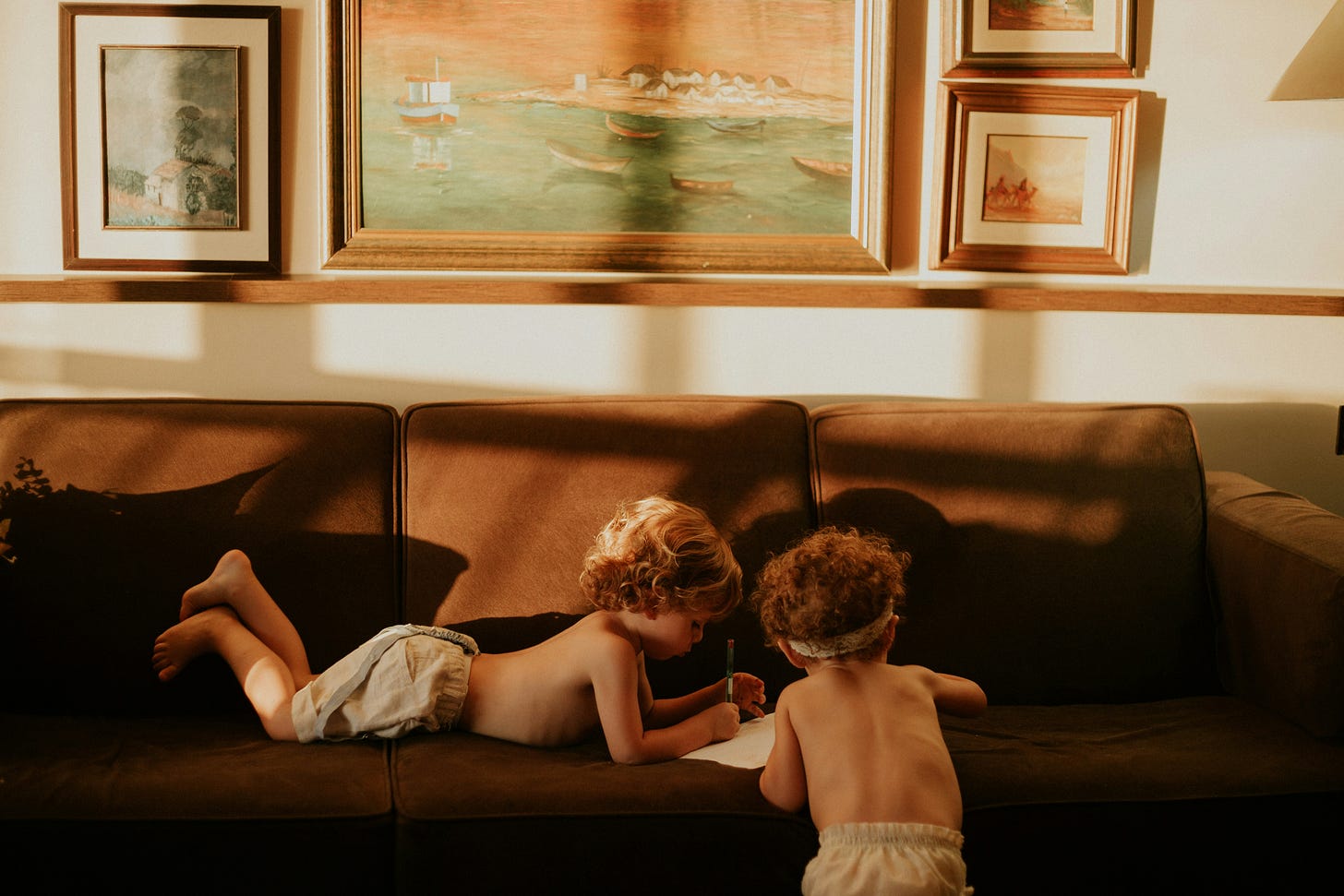The Most Crucial (and Overlooked) Aspect of Homemaking
Whether you're a stay at home mom, work full time, or are somewhere in between, this aspect of homemaking matters more than all the others.
Have you ever walked into a house and noticed a sort of emotional atmosphere? Sometimes a home can feel warm, inviting, and full of love. Sometimes it can feel tense, on edge. Other times, cold and detached. You can’t quite put your finger on what exactly creates that feeling, but it wells up inside you nonetheless.
Part of it is in how the shoes are arranged by the door, what is (or isn’t) sitting out on the kitchen countertops, and how worn the furniture looks. Part of it is how the house sounds: do you hear the sound of laughter, of little pattering feet? Or, is it silent? Is the silence peaceful or fearful?
More than anything, you can tell the atmosphere of the home in the faces of the people who live there. Who greets you when you walk through the door? Is it a little smiling face or a dejected husband? Are voices spilling over with joy at your arrival or are they feigning calmness to cover up the fight had earlier that day?
In my personal and professional experience as a couples therapist, in the majority of homes I’ve experienced, women dictate this atmosphere*. As wives and mothers, we set the tone for our homes by our own emotions. When we’re stressed, our homes are stressed. When we’re angry, our husbands and children tiptoe around us to avoid triggering an outburst. When we’re distracted or detached, our loved ones feel neglected. When we hold a grudge, our homes are flooded with anxiety. To be clear, far from being a condemnation of the emotions of other women, these examples are more a personal reflection on my own life and shortcomings.
As I realized that my words, emotions and actions have an intense gravity that shapes our home, I was tempted to shirk this responsibility. “How could this be mostly on me? I’m not the only one who lives in this house!”, I would say to myself.
But, reality is true whether I believe it or not. So, eventually, I chose to view this responsibility as a blessing rather than a burden, and here’s what I realized: for the majority of us women, we were gifted this opportunity to create the sort of atmosphere in our homes that we want our favorite people (our husbands and children) to get to experience.
If you’re interested in reflecting on this idea more for yourself, here are a few questions I’ve asked myself that helped me think more about the sort of emotional atmosphere I want to create for our home:
What emotions or experiences were missing from your home growing up that you want your husband and children to have?
What words would you want people to use to describe your home after staying with you for awhile?
In what ways could you adjust your approach to homemaking (how you think, speak, act, and express your emotions) so that these desires of yours come true?
After asking myself these questions, I realized several areas in my approach to emotional homemaking that needed some revamping. For example, cleanliness. At times, I’ve prioritized keeping the house clean above making my family and guests feel comfortable. And, as I value hospitality a lot more than cleanliness, I decided my actions needed to change to accommodate that higher value.
As we enter the holiday and hosting season, this post seemed particularly timely. What feelings do you want your guests and, more importantly, your own immediate family to walk away with after having lived in your home for the next several weeks? What do you want them to remember?
For me, I hope they remember squeals of delight from our toddler, cuddles with our infant, happy dogs wagging their tails, warm food and hugs, and a whole lot of joy. I hope they remember being served and appreciated for who they are. And, if that means more mess for me to clean up once the hosting is over, that’s a sacrifice I’m grateful to make.
Hang in there, wives and mamas! You’re doing the Lord’s work.
~ Cameron
*A clear exception to this rule is in situations of abuse. By no means am I asserting here that women should be happy in abusive situations. Rather, they should always seek safety for themselves and their children.


